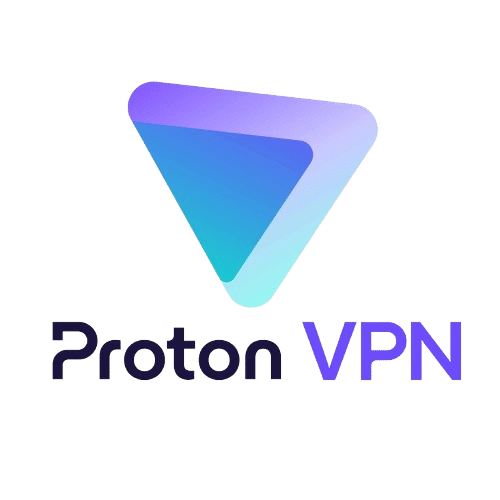What Is a VPN, and Why You Need One? (Beginners Guide)
Virtually every personal computer connects to a vast network of similar devices across the globe. At the inception of the internet, excitement about the concept of data sharing on an international scale caused the potential security challenges to seem non-existent. But realities of the 21st century have made us discover the essentiality of online security over connectivity, part of which is made achievable by VPNs. This article will guide you through the world of VPNs and help you understand what it is and how it works.
📌 TL;DR – What is a VPN?
- VPN = Virtual Private Network: An encrypted “tunnel” that protects your connection and hides your IP address.
- Main benefits: Increased privacy & anonymity, secure use of public Wi-Fi, bypassing geoblocking and censorship.
- How it works: Your traffic runs through a VPN server; externally, only its IP is visible – not your own.
- Common use cases: Unlock streaming libraries, reduce tracking, work securely on the go, protect against unsafe networks.
- Protocols & technology: Modern standards (e.g., WireGuard, OpenVPN) combine strong encryption with high performance.
- Limitations: Not a cure-all – speed may vary; legal & terms-of-service rules of services still apply.
- Selection criteria: Clear no-logs policy, independent audits, good speed, wide server network, solid apps & support.
💡 For details, examples, and safe usage tips, read the full article.
What is a VPN?
‘VPN’ is an acronym for “Virtual Private Network”. In simple terms, it’s a technology that affords internet users the privilege of accessing online services with an added layer of privacy and security. Name any device that uses an internet connection, and there, you have something for which you can use a VPN service. Tablets, smartphones, Smart TVs, IoT devices, wireless routers can all use a VPN.
Probably everyone has had that feeling of being followed or watched while walking down a street. The same is similar online, with the telltale surveillance and data mining activities of entities like the NSA, hackers, ISPs, and corporations that harvest online service users’ personal information. The need for online privacy and safety becomes paramount.
To eliminate threats of being trailed on every website and online service, VPN services act as a sort of tunnel that keeps users off the well-beaten paths of an online public thoroughfare. VPN encrypts your data and assigns a different IP address to your device while cascading the actual one. The implication of this arrangement is: interference with data packets sent from a network or device protected by a VPN will prove futile if the intention is data extraction. Firstly, the data source cannot be traced, as VPN-protected devices are anonymous, more like a call from the old-time payphone. Secondly, data intercepted from a VPN-protected device will turn out as gibberish, and in effect, useless. Since hackers cannot access sensitive information, user identity is equally protected.
Mind you, VPNs are not a surefire assurance of online protection and privacy. Like every piece of technology ever made, VPNs come with their drawbacks and loopholes. Later in this article, we will be highlighting recommendations on how to guard against the just hinted cons.
How Does a VPN Work?
VPNs come in varieties, but they mostly have the following functionalities in common:
- Upon initiating the VPN software, the application scrambles your data before sending it to the remote VPN server. This arrangement means there is no direct connection between your device and the internet. The VPN encrypts your data before even the ISP gains access.
- After connecting to the VPN remote server, a different IP address, one belonging to the remote VPN server, is assigned to your device. This disguises the connection of devices linked to the VPN server, making them seem to come from the new IP address and location. It is very similar to a detective who notices he’s being followed and tries to outmaneuver the assailant by changing the garment he has on and going to places he never intended.
To understand why such detours are necessary for privacy and security on the internet, we would need to know how the internet works by default. We’ll explore this in the next section.
What Does a VPN Hide?
Data sent using the famous Internet Protocol is available to anyone who has the technical know-how and is willing to go through the trouble of doing the collecting. If, for example, an internet user in South Africa is to connect to a university server in Norway, there are no direct connections between the two locations. However, a series of interconnected devices in-between makes the link possible. On every network node (or device), which data has to hop between the two locations, unencrypted information is available to those who have physical or remote access. Now, if the established path of connection is somehow disrupted, the data packets will be automatically channeled through the next available link, even if the link has vulnerability issues.
The Internet Protocol is still in use today, albeit with some modifications and alterations; however, the broad overview of the technology behind data connectivity remains the same. The implication: since virtually every website on the internet collects your personal information; your data gets shared repeatedly on insecure network channels. Truly, reputable organizations (like banks) give customer security a priority, protecting users on their websites, but outside such secured networks, user data becomes free for all.
Therefore, browsing the internet without a VPN is like making a call over an analog phone network of the 20th century. Anyone who has access to tap your phone line can easily listen in on your conversations. The telephony analogy of VPN would be the encryption and security of military-grade wireless phones.
What is all the VPN noise about? Well, here it is:
- Sending data through a VPN to any part of the internet gets encrypted, thus becoming inaccessible to potential hackers.
- Since your connection to the internet is an indirect one, your device appears to have the VPN server’s IP address, and all data seems to come from that server. Forthwith, your location, identity, and browsing information are all secure.
VPN Pros: Advantages of Using a VPN
There is a daily increase in reports of online security and privacy breaches, some legitimate, and many otherwise. In some cases, large corporations have their databases breached, and some of their online infrastructure hacked. And in a bid to keep such vulnerabilities and attacks at bay, individuals and institutions are starting to include a VPN service in their security budget.
We shall, therefore, be assessing the manifold benefits of using a VPN while surfing the web.
1. Allows secure transfer of confidential data
Remote transfer of data is one of the main functionalities that popularized Virtual Private Networks. Companies that required some of their workers to access files or resources on their private servers, particularly from a remote location, add the individuals involved to a private network. With this, files sent across this connection are encrypted and forthwith secure.
In recent years, dedicated P2P servers are made available by some VPN service providers. A VPN ensures a hitch-free sharing of bulk documents without compromising confidential data. VPNs equally allow a secure connection to your home network when you’re out of the country.
2. Provides the online invisibility cloak
An invisibility cloak provides a good analogy of what VPN does for an internet user when adequately used. By connecting to the internet via a VPN service, online snoops and spectators see an IP address different from your original IP address. The VPN server assigns a different IP address to every device that connects to it, thus making websites perceive data packets sent from your device as coming from the VPN server.
Do you want your IP address and location protected? Use a VPN. If you’re wondering how your location can be determined using the device’s IP address. Here’s how it works:
The uniqueness of your IP address and some services that automatically turn on the ‘Locations’ setting of your phone or router are likely to give away your location. Maybe not in real-time, but browsing the internet without a VPN could leave your digital footprint all over the places you frequent.
It is worthy of note, though, that irrespective of VPN use, a user’s identity may leak for one of many reasons; this will be discussed in-depth in the VPN features section of this article.
3. Eliminates geo-restrictions
The demand for fast speed internet has been on the rise in recent years, high bandwidth-consuming activities like video streaming and gaming being the culprits. However, the gist about many of these services is the fact that they are geographically restricted. For example, Netflix has different contents for different regions due to licensing inconsistencies, with some regions like the US having a wider library. Using a VPN can help you bypass such restrictions as it provides you with an IP address of your desired country, thus making it seem as if you were browsing from that country..
Similar to Netflix restrictions on video streaming, enthusiasts of popular online games like Minecraft have experienced delays in new version releases in some locations. This is sometimes a marketing strategy, just the way movies first go to cinemas before becoming available on streaming services. VPNs can also help to bypass these gaming restrictions; all you need to do is connect to a server in your desired location.
4. Helps in evading speed-capping
Some ISPs usually cap the speed limit permissible for their users as a profit maximization strategy. In some cases, local authorities force ISPs to restrict users’ speed limit, and by implication, the kind of content they have access to.
In a few countries where citizens are very politically active on the internet against their governments, they have been met with the local mobile network and data providers throttling their internet connectivity speed.
Using a VPN service can successfully isolate you from the demography of devices to be speed-limited. This is easy to achieve — by connecting to the internet via servers located in remote locations.
5. Boosts security on both public and private networks
Though VPNs are not the only source of security and privacy for internet-enabled devices, using them in synergy with antivirus applications, firewalls, and other preventive measures could help achieve top-notch security and privacy. Due to the security concerns that accompany public WiFi, internet users have, on many occasions, shied away from connecting to a free wireless hub. However, with a VPN installed on your device, worries of vulnerability on public networks can be cast aside, as all data sent via a VPN service is encrypted. It becomes more difficult for phishers, spammers, and hackers to breach devices or networks secured by a VPN.
Besides the ascribed benefits of VPN usage above, there are still some benefits peculiar to particular providers. And these benefits, like the icing on the cake, make VPN users subscribe with providers with these features. Some of the features are:
1. 256-bit AES encryption: This is the most substantial level of data encryption available to commercial users. It is a real heartbreaker for hackers and a sure motivation to seek out easier vulnerabilities to exploit. This encryption standard is used by the military as well as government agencies. Top-notch VPNs are fitted with the AES-256 encryption so that users do not have anything to worry about on the security and privacy front.
2. Multiple servers and IP addresses: Most VPN services provide the capability of choosing from several VPN servers to connect. Servers that are physically closer reduce the drain in connection and streaming speeds. Some VPN servers also come with a feature called “IP shuffling”. Detailed discussions on this will come up in later sections. IP shuffling permits users to shuffle between multiple IP addresses on a single VPN server, thus effectively creating an internet version of “Now you see me, now you don’t.”
3. No-log policy: Some VPN services offer free subscriptions in exchange for logging user data and subsequently selling the same to the highest bidder. However, a top-notch VPN service will do no such thing. These VPNs have a no-log policy which saves you from leakage of personal data from sites you visit, ISPs, or even the government.
4. Protection from DNS leakages: When your VPN connection is active, data packets are encrypted and secured. But when a glitch occurs in the VPN connection, your identity and data are out in the open while the VPN tries to reestablish connection automatically. VPNs with a feature called a ‘Kill Switch’ will initiate an automatic disconnection once a downtime occurs in the VPN service.
VPN Cons: Disadvantages of Using a VPN
Like every piece of technology developed, some VPNs equally have a couple of notable drawbacks, which we cannot afford to ignore. We’ll review some of them below.
Reduction in connection speed: The encryption of data often causes a lag in the connection speed of data sent through a VPN service. Connection to physically remote VPN servers may also reduce connection speeds.
Illegal in some countries: While some countries have restrictions on the use of VPNs, some others have enacted an outright clampdown on its use. In a bid to stay safe while going abroad, it is best to ascertain if a VPN is permissible in your destination country so you don’t get ‘banged up abroad’ on account of VPN usage.
Lacks backward compatibility with old technologies: Just in case your server or router sports an old Operating System and Firmware, there is a very high probability that a VPN application won’t install on them. And if you happen to install one successfully, connection glitches caused by outdated software patches are likely to occur intermittently.
A drain on the wallet: The very best VPN services in the market aren’t free; they charge a fee for their services. Many free VPN offers should raise the eyebrow regarding the quality of service.
Key Features Every VPN Should Have
While deciding between several VPN service options to choose from, here is the list of essential features that will afford you a user-friendly, secure, and convenient experience. VPN services that provide most or all of the features highlighted hereafter are the toast of the VPN market.
1. Fast Connection
It is often the case that users have to choose between speed and security. That is, if you want to have ultra-fast connections, then you have to compromise on your security, and if you want a tight security, then you have to accept a reduction in speed. However, a top-notch VPN service must be able to deliver on both fronts. With a good VPN, a user shouldn’t have to sacrifice one for the other. VPNs that have a wide array of servers are usually able to offer faster speeds while maintaining a good level of security.
2. Above Average Data Encryption
Data Encryption by VPN services is an indispensable and non-negotiable attribute. Using a VPN that does not encrypt data is no better than not having one. The usual suspects of hackers, spammers, and ISPs will have a field day with data sent from your network or device.
A VPN service with AES encryption is a reassuring sign because AES encryption is so good that it enjoys some reputable (public and private) organizations’ patronage. Microsoft, NSA, and Apple are but a few examples of AES encryption faithfuls. The celebrity status enjoyed by the AES-128 and AES-256 technology is not farfetched: it is thus far reckoned as ‘unbreakable.’
3. Dependable VPN Protocols
There are several secure VPN protocols available for providers of the service to avail their users. However, having the choice of picking from a list of VPN protocols before connecting to a server is the best bet.
VPN service providers that support one or all of SSTP, OpenVPN, SoftEther, and IKEv2/IPSec protocols can quickly get a certification of reliability.
4. Kill Switch
Though very rare, some situations might bring about a disruption in your device’s connection to the VPN server, thus causing exposure of your real IP address and browsing data on the web. The physical distance between your device and the VPN server can cause such connection glitches, leading to timing out of the connection.
In all, a Kill Switch eliminates the vulnerability that comes with such disruptions of a VPN connection. Kill Switches achieve their purpose by automatically terminating the internet connection of the concerned device as soon as the connection to the VPN server is lost; this prevents your data from getting exposed on the internet.
5. Apps Killer
The VPN Apps Killer functions more like a Kill Switch, only that it has a more specific outlook. In comparison to the Kill Switch, Apps Killer gives you the privilege of choosing some software to disable whenever a VPN connection is lost.
For example, in a situation where you only use your VPN for online gaming on your PC, and you have had previous experiences of getting disqualified or locked out whenever your geo-restricted IP address is exposed. A simple solution would be to select the said gaming application under the Apps Killer feature settings. Whenever a connection to the VPN server is lost, the Apps Killer isolates and automatically closes the gaming application and any other pre-selected application while leaving your internet connection active and other applications running.
VPN services that offer the Kill Switch and Apps Killer features simultaneously would be an excellent stake to try out.
6. One-Subscription-Covers-All
Some VPN service providers only permit a dedicated subscription for individual devices and a jumbo subscription for routers. But some customer-centric services allow users to use a single VPN subscription account to protect multiple devices.
VPN users tend to look out for such convenient subscription packages. A decent VPN service should allow you to connect up to five devices simultaneously.
7. Dedicated and Wide-Coverage Servers
A global network of over a hundred servers would be good enough for quality VPN service. But providers with an excess of a thousand servers (both virtual and physical) could fare better, with the advantage of redundant connection links.
Also, reliable VPNs services have dedicated servers for high bandwidth traffic like torrenting, video streaming, and Peer-to-Peer (P2P) bulk file sharing. This feature leaves other servers decongested for regular traffic services.
8. Compatibility Across Multiple Technology Platforms
It is always safe to check for this feature before subscribing to a VPN service. Internet users of the 21st-century access online resources through one or a combination of different technologies, smartphones, PC, tablets, smart TV, and IoT devices being good examples. Providing a single user subscription account that can support multiple devices is not enough. The VPN’s software should also be compatible with the various devices. For what is the essence of a VPN subscription plan that the service provider claims can work on multiple devices, only for the VPN software to only install successfully on just two of the five different devices you plan on protecting?
9. Protection from Potential DNS Leakages
DNS stands for Domain Name System and is the system that enables the conversion of website names (URL) to IP addresses and vice versa whenever a website is queried — that is when an end user’s device requests data or permission to view certain content.
VPNs without protection against DNS leakages are susceptible to DNS query bypass, in which case, devices send direct DNS queries to the ISP. Such bypass implies that devices bypass the VPN server and communicate directly with the internet or ISP. So, looking out for a VPN with the DNS leakage protection feature prevents IP address and identity leakages.
How to Choose the Best VPN — Quick Tips for Beginners
Are you new to VPNs? If yes, here are some quick tips to consider before deciding on the best service provider with which to subscribe.
1. Determine the Needed Priority Features
Since VPNs come in varieties, with various features and capabilities, it becomes expedient to decide the VPN’s purpose beforehand and the particular VPN service provider that qualifies as having the highest reliability in the area in question.
2. Check the Provider’s Quality Strength
Virtual all reputable VPN service providers have a strong selling point on which they capitalize on their marketing campaigns. In some cases, it could be a vast global network of servers, some may be strong AES encryption and VPN protocols, and in others, it could be Kill Switch or streaming speed.
In all, the provider’s strength should match whatever priority feature that potential subscriber identifies in the first tip.
3. Servers in Desired Locations
It is of little consequence that a service provider has an army of over 1000 global servers if none of the servers offer vital coverage for your desired location. The best bet, therefore, is to check the array of VPN servers of a particular service provider and ensure it covers your preferred location(s).
4. Device Compatibility is Important
Besides the devices you presently want to secure using the VPN service, it would be smart to factor in other devices you may want to protect in the future. Therefore, you should choose a VPN that supports the highest possible array of different devices.
5. A User-Friendly Interface
Except you have some tech experience, hunting for a VPN that is easy to use for the average computer user will save you from a lot of headaches. A VPN that will walk you through the necessary steps to set up and initialize its software would be a safe go-to for beginners.
6. Round-the-Clock Customer Service
Even experts in the know of how the technology works sometimes require remote support to rectify issues. So, having a VPN with 24/7 customer service would be a plus for beginners. It can be frustrating to pend a job intended for submission in the morning because you could not reach the VPN customer care agents at 2 am.
7. A Convenient Billing Package
After reviewing two suitable VPNs that offer exactly similar or close to the same features, going for the cheaper of the two is the wise thing to do. Besides, the supported payment system – Paypal, Bitcoin, Credit Cards, subscription packages, and offers of money-back guarantees, are also due factors to consider.
A Brief Guide: 5 Best VPNs for Beginners
Wrapping your head around the various technologies of the internet, VPN especially, could be a daunting task. The VPNs with the best offer for beginners are the user-friendly ones. Having reviewed several VPNs on multiple platforms, the following are the best, in the arranged order:
1. ExpressVPN: This VPN is yet to be surpassed by another. In addition to the benefits offered by other top contenders for the best VPN, ExpressVPN boasts of the highest speed and a foolproof no-logging policy.

Get 79% off now
2. NordVPN: Run by a company based in Panama, there is no cause for alarm when it comes to data logging or handover to authorities. This VPN’s server count is one of the highest in the market, offering you unparalleled reliability.

Get up to 70% off now
3. Surfshark: If you want to enjoy hitch-free video streaming and torrenting services, Surfshark would be your premium plug. This is in addition to being cheap, and limitless, with respect to the number of devices permitted, per subscription.

Get 87% off now
4. ProtonVPN: Based in Switzerland, ProtonVPN offers a no-logs policy and advanced privacy features like Secure Core routing. Its free plan provides unrestricted access without ads, making it a top choice for privacy-conscious users.

Get 64% off now
5. CyberGhost: Mac users have favorably reviewed CyberGhost as the best-suited VPN for Apple computers. Though the price isn’t as cheap as Surfshark, the 256-encryption, top-notch customer care, and encouraging discounts make their services worth giving a try.

Get 83% off now
Free VPNs or Paid VPNs?
Between 2016 and 2018, many internet users started turning to VPNs; this trend gained popularity due to laws that permit ISPs to access customers’ personal information. Before then, VPNs were merely used by networking geeks and people who love walking the edge using public networks for their internet needs.
But fast forward to the present day, necessity has given rise to several VPNs putting up free services. Are these services genuinely free, and if they are, what are the strings attached?
Here are some of the variations between a free and paid VPN service:
Price Tags: We mentioned earlier that the best feature a VPN offers is its selling point. In the case of free VPNs, that is the best feature available – the price. However, free VPN services are usually a breeding ground for criminal activities; that is if the service is worth using – due to low service quality.
User Protection: If using a free VPN is expedient, go for offers of free-but-restricted-access Premium VPN packages. At least, you get to know the premium features you’re missing but still get to enjoy the security of a premium VPN service.
Service Quality: In a bid to foot the bills for their server and licensing fees, providers of free VPN are prolific for selling users’ browsing history and logged information to advertising and online marketing entities. In some cases, free VPN services come with serial strings of ads and annoying pop-ups.
Nothing beats paying for your VPN if you can afford it, and the good news is: there are several pocket-friendly, money-back guaranteed subscription packages from Premium service providers.
A few reliable free VPN services include ProtonVPN, Hotspot Shield, and Urban VPN. Almost all free VPN services provide at least 128-bit AES encryption, but they limit features like access to servers and permissible data usage.
Step-by-Step Guides to Set Up VPNs on Different Devices
VPN providers have come to the awareness of user-friendliness is a top priority for many users; forthwith, most VPNs tailor their services to meet that need. Nonetheless, here are simple steps to follow to get your VPN running on some standard devices — smartphone, router, smart TV, PC, etc.
Kindly note that slight variations may occur in the steps for your device, depending on the particular VPN in question and the device’s Operating System. The good news is: many VPNs provide a detailed guide about installing their applications on the official website.
Installation Guide for Smartphones
1. Visit the Google PlayStore for Android or App Store for iOS devices.
2. Search for the particular VPN application you have reviewed and download the app.
3. After enabling the downloaded app, log in, and tap a server location to connect. Some apps are known to automatically select the best site for connectivity if you’re not particular about server location.
4. That does it! You can enjoy all the features the VPN has to offer.
Installation Guide for Routers
Having to install a VPN application on every device connected to your home network can be a hassle. Installing a VPN on the gateway to your home network — the router — saves you the headache. Here are steps to follow for the installation process:
1. Review and earmark a reliable VPN, download its router firmware.
2. Connect your new or old router to a PC.
3. Open the router graphical interface on the computer.
4. Create a username and password; never use the default login details.
5. Click the Upgrade Firmware tab on the router interface by selecting the earlier downloaded VPN firmware.
6. Enter activation code supplied after subscription payment, and activate.
Installation Guide for PCs
1. Download and install the VPN’s setup file.
2. Open the installed application and connect to an available server.
3. You are good to go!
Installation Guide for Smart TVs
Smart TVs seldom support firmware; the best way of protecting your internet-enabled TV is to either connect it to a router with a VPN installed or connect it to a PC with VPN protection.
Conclusion
Having polished your knowledge on VPNs, deciding if one is necessary becomes an easy conclusion to reach. Selecting reliable VPNs also becomes a walk in the park. To make it easier for you, we have listed a few of our favorite paid and free VPNs for you to choose from. Choose any of these VPNs, and be sure of online freedom and security.

